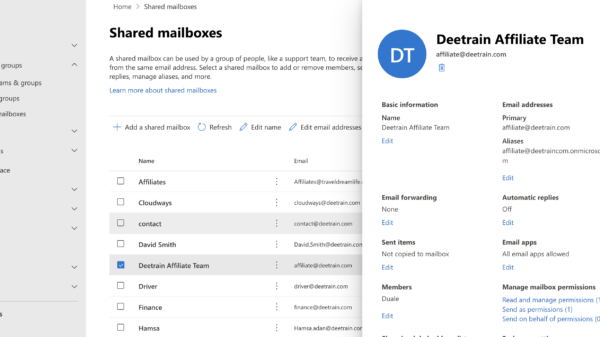As technology continues to advance, an increasing number of people choose certificates rather than college degrees as their initial step into the realm of information technology. This method has several advantages, including reduced expenses, quicker completion times, and speedier progress in one’s profession.
Many firms will recruit you if you have the appropriate certifications and skills. You may go from being unemployed to working in IT in a matter of minutes after obtaining your certifications. It also depends on the sort of certification you have and the firm hiring you because many firms also demand a college degree.
Do you want a rewarding career in IT? Undoubtedly, an IT certification can open new possibilities. But how can I tell the difference between a certification and a degree? This page will help you find out! And how can you determine which certifications are worthwhile? This article will discuss some top certifications, which will get you an entry-level job in IT Sector and why they are worthwhile. This Post will help you find out!
What is an IT certification, and can I obtain a job if I have an IT certification?
An information technology certification is a collection of abilities that someone possesses in-depth knowledge and expertise to carry out certain duties successfully. This sort of qualification would, then, open the door to employment prospects because companies favor individuals who possess these qualifications over those who do not!
Employers increasingly require professional certifications from college graduates in addition to a degree, according to a recent study. Another trend is the emergence of trained experts with only a school diploma or less, who effectively meet specialized labor needs in high-income areas such as information technology (IT).
Importance of IT Certifications
Listed below are why certificates can help you obtain a job and why they are so successful even if you don’t have a college degree.
- There is a universal standard for IT.
Not every credential is regarded equally, and not every university degree is either. The university determines the worth of a degree and its position on the world’s list of best universities. As a result, a degree from MIT, Stanford, Harvard, Yale, Cambridge, Oxford, or ETH Zurich is recognized globally, but a degree from a lower-ranking institution is not.
An AWS Certification, on the other hand, is always an AWS Certification. So, too, is a certification from CompTIA, CISCO, or another IT industry leader.
The standard for everyone (students and professors) stays the same, such as what you learn, how you learn it, and the examinations you complete to finish the course. Because an international body upholds these criteria, the certificate has the same value to companies worldwide.
- IT is a highly specialized field.
The majority of certificates are in-depth and industry-specific. Everything is focused on one subject, and so is what you study. A Linux network security qualification focuses solely. However, it covers everything in phases, from elementary to advanced abilities and growth.
A university degree in IT, on the other hand, includes many disciplines at a basic level, which is generally insufficient to attain the level of skill demanded by most organizations. In addition, graduates must earn a Master’s degree to acquire the same skills from a certificate program.
- IT Certification takes less time to obtain
Because certification classes and programs are so focused, obtaining a certificate generally takes considerably less time than obtaining a degree. A certification will get you there faster if you want to start working as soon as feasible.
Even the most advanced programs are only available for a year. And, in the time it takes to earn a Bachelor’s degree (six years on average), you may become a top expert in a field of your choice.
- IT is a skill-based system.
The sole distinction between a skilled professional and a new graduate is skill level. It’s also the most effective way to study and, more crucially, apply what you’ve learned from theory. Certification programs, on the other hand, concentrate on teaching ability and their implementation in practice.
It is also highly sought after by employers, as talent (rather than knowledge) generates revenue for a firm, particularly in the IT industry. The theory is picked up fast and on the job.
- College Degrees are Expensive
According to a 2018 study, a four-year state university degree typically costs $10,000 per year for citizens and $26,000 each year for others. However, the quantity of college loans a student incurs over those four years is considerably larger, at $36,900.
That’s a great deal of money when you realize how often you can make in four years. On the other end, certification courses do not come close in terms of cost, with some certification courses being entirely free. However, you may get the skills needed to find a job and rapidly recoup your expenditure for less money.
How do you get certified in IT?
IT certifications can demonstrate to companies that you have the foundation of knowledge required of an IT expert. Furthermore, they might increase your competitiveness for employment and promotions.
Here are the basic steps to get Certified:
- Choose a certification.
Choosing a certification that is appropriate for your requirements is dependent on the skills you want to develop and the goals you want to achieve with it. If you want to discover what sorts are available. You can read through numerous job descriptions for occupations that interest you to determine what abilities are required.
Here are some best Entry-level Certifications:
- CompTIA A+
- Google IT Support Professional Certificate
- Cisco Certified Network Associate (CCNA)
- CompTIA Network+
Get ready for the Exam.
Certifications will often need you to pass an exam to get the certificate.
Comply with all of the Exam’s criteria.
Prerequisites are typically not required for entry-level certificates, although more expert certifications may have more stringent requirements. Check to ensure that you will be ready to obtain the test for the Certification you have chosen.
Prepare for the test.
Every Certification usually includes a matching test, which is mentioned on the website of the certification issuer. They may also provide a summary of the topics covered in the test as well as practice questions. More famous certifications should have several prep classes, textbooks, or other study materials available.
Schedule your examination.
Enroll for your test on the site of the certification issuer; this is also generally when you submit the exam cost. The amount of time you have to study for your certificate program may vary based on your expertise and how much you’ve learned if you’re starting, budget for several months, or postpone until you feel prepared to enroll.
Take the test
Exams can be taken either person or online. They can feature a variety of question formats, such as multiple-choice questions, short answers, or ones that require you to complete an activity.
Go through the regulations and prerequisites again before your test. You could be requested to provide a valid ID, or you might wish to know how long the Exam would take.
Why should I get certified in IT instead of going to a traditional college?
The traditional college path is a great way to get your degree, learn about different cultures, and meet many new people. However, if you’re looking for something more challenging, Obtaining an IT Certificate is more worthy so, there’s no better time than now because technology skills are in demand!
Whether it be programming or design: The world needs everyone who can master these technologies so they will always have jobs available -and that should excite anyone interested in learning how things work under the hood.
IT Certification is the way to success for those that want more money, better jobs, and opportunities. It’s also a great investment with an assured return on your educational time!
Job-hunting can be a long and arduous process, but it doesn’t have to feel like you’re on an emotional roller coaster. IT Certifications will arm candidates with all they need not only land their dream job but also progress through an industry or company track quickly–which means higher salaries down the road too!
The benefits of getting a certification in IT
I’m sure you know how important it is to find a job that fits your skills, and with all these new changes in this field happening constantly, there are even more opportunities now than before. Certification programs allow people like us who want careers to use their knowledge of one thing but learn something else on top of it!
Certification in IT can help you get a higher-paying job, and it will also improve your computer skills. Many people think that only engineers or programmers need these certifications, but this is not true!
If someone wants to work with computers, getting certified could be beneficial because there are so many different types out now like Network+, Security+, etc., which cover more areas than just programming languages do.
The value of obtaining a certification in IT can’t be understated. There is no denying the benefits and perks that come with getting certified, from improved job opportunities to increase earning power!
The disadvantages of getting a certification in IT
The Certification in IT has some disadvantages, but it can be an advantage for those who hope to find employment or advance their careers. For example:
You’ll have access only to jobs that require the certificate – so if your dream job is programming software and you’ve just received one of these certificates, then good luck with getting hired anywhere else; this doesn’t mean companies won’t hire people without certifications though!
You might need different qualifications altogether (like a degree). -The courses are time-consuming, which means fewer free days spent doing what matters most, making friends & collecting memories along the way.
What are the different types of IT certifications available?
There are a wide variety of IT certifications available, and they can be broken down into three major categories: entry-level, mid-range, or higher-level qualifications.
The lower levels offer more practical experience with less theory learning. At the same time, the highest degrees provide you access to detailed information about technical skills that might not otherwise apply in your everyday work setting.
You could earn your IT certification through several different avenues. The three most common types are Microsoft Certified Solutions Associate, CompTIA A+. Finally, there’s the Omega Forums Cloud computing Certification for people looking to specialize in this field or as an expert on one specific area within it!
The certifications all come with their own set of requirements and specializations, so make sure you’re picking something that will suit YOU best before investing time.
How to find a job with just a certification?
We all know that Certification can get you the job of your dreams, but how do we find one?
Why not just put in some time and effort. Here are five steps to finding a great fit:
1. Research companies looking for someone who holds this specific certificate
2. Search LinkedIn
3. Check online forums
4. Talk with people at trade shows
5. Get referrals
Final Thoughts on Can I Get an IT Job with Just A Certification?
In my opinion, certifications are a great way to get your foot in the door. The requirements for each job vary, and some only require one or two hours of training, but if you’re looking specifically at positions where Certification is required, this can be an excellent option.
In addition, having several certifications shows potential employers do our current jobs well enough (which everyone should) and how dedicated we were before them because people often forget about past careers when looking at resumes.









